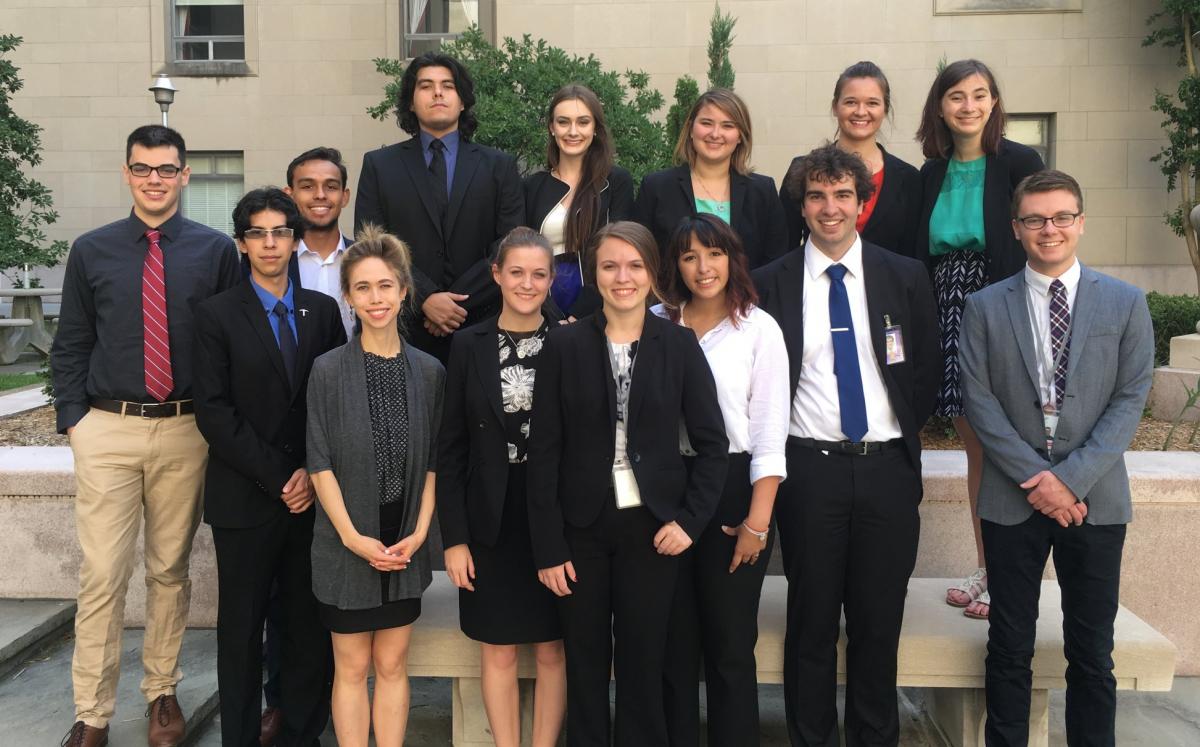Monday, July 3, 2017
By:
It was quite a week for science policy. The two SPS Capitol Hill interns, Eleanor (House Committee on Science, Space, & Technology) and Riley (Senate Committee on Energy and Natural Resources), gave us a fantastic tour of Capitol. We sat in on a Space Subcommittee Hearing, "In-Space Propulsion: Strategic Choices and Options," and got a shout-out from Rep. Ami Bera. In addition to getting a glimpse of Speaker Ryan and Vice President Pence, we sat in the House gallery for debate of H. R. 3004, or "Kate's Law." Finally, we heard from a Energy and Natural Resources Committee staffer, who gave some insight on their role in the legislative process and their work to pass S. 1460, the Energy and Natural Resources Act of 2017.

Earlier in the week, I attended an event at the National Academies with Richard Harris, an NPR science journalist. He discussed his recent book on wasteful biomedical research that results from poor research methodology. While very few cases of intentional fraud in science exist, Richard found that bad research practices are fueling the reproducibility crisis. The "publish or perish" culture drives scientists to publish results without sufficient review. As Richard illuminated, what is best for a scientist's career is not what is best for science.
While Richard's investigation focused on biomedical research, poor research practices are certainly present in other fields. The issue of integrity in research is particularly important when insisting on scientific-driven public policy. For example, recent moves to shape climate and environmental policy are justified by the idea that the poor research methods and absence of the scientific method have created bad science. For science to have a significant role in the policymaking process, the issues of integrity of research must be acknowledged and addressed.
Jacob Robertson
